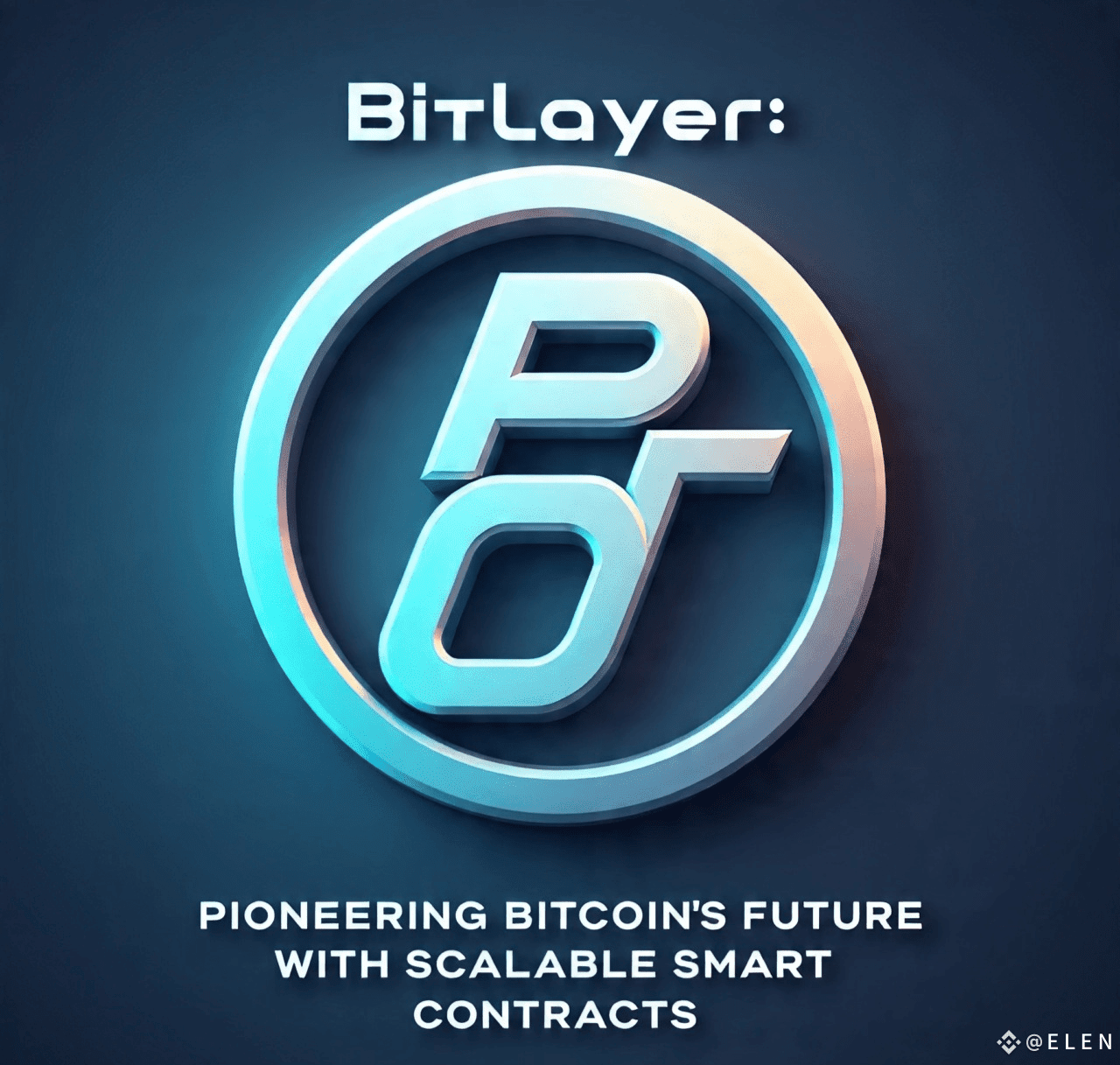
In the ever-evolving landscape of blockchain technology, Bitcoin has long stood as the gold standard for security and decentralization. However, its inherent limitations in scalability and programmability have often hindered its broader adoption, especially in the realm of decentralized applications (dApps) and decentralized finance (DeFi). Enter Bitlayer, a groundbreaking Layer 2 solution designed to bridge the gap between Bitcoin's robust security and the growing demand for scalable, programmable blockchain platforms.
What Is Bitlayer?
Bitlayer is a Layer 2 network built atop Bitcoin, leveraging the innovative BitVM paradigm to introduce Turing-complete smart contracts to the Bitcoin ecosystem. Unlike traditional Layer 2 solutions that rely on sidechains or federated models, Bitlayer anchors its security directly to Bitcoin's consensus mechanism, ensuring that all state transitions are verifiably settled on the Bitcoin mainnet. This unique approach combines the scalability benefits of Layer 2 solutions with the unparalleled security of Bitcoin, creating a robust foundation for the next generation of decentralized applications.
Core Innovations of Bitlayer
1. BitVM: Enabling Turing-Complete Smart Contracts
At the heart of Bitlayer lies BitVM, a novel computational engine that enables the execution of complex smart contracts on Bitcoin. By utilizing a combination of zero-knowledge proofs and optimistic execution, BitVM allows for the off-chain computation of smart contracts, with the results periodically verified on-chain through a recursive verification protocol. This design ensures that while computations are performed off-chain for efficiency, their validity is anchored to Bitcoin's immutable ledger, preserving the network's security integrity.
2. Layered Virtual Machine (LVM)
To facilitate the execution of smart contracts, Bitlayer introduces the Layered Virtual Machine (LVM). The LVM decouples the front-end smart contract execution layer from the back-end zero-knowledge proof generation, allowing for independent optimization and extension. This modular architecture enhances the flexibility and scalability of the platform, enabling developers to build and deploy complex dApps with ease.
3. Recursive Settlement Protocol
A significant challenge in Layer 2 solutions is ensuring that state transitions are securely and efficiently settled on the mainnet. Bitlayer addresses this by implementing a recursive settlement protocol that allows for the continuous, verifiable settlement of Layer 2 state transitions on Bitcoin. This protocol leverages the BitVM paradigm to recursively verify the validity of state transitions, ensuring that all operations are securely anchored to the Bitcoin blockchain.
4. Trust-Minimized BTC Bridge
Interoperability between Bitcoin and other blockchain ecosystems is crucial for the growth of the broader decentralized finance space. Bitlayer's trust-minimized BTC Bridge facilitates secure and decentralized transfers of Bitcoin assets between the mainnet and the Bitlayer network. By utilizing pre-signed smart contracts and fraud proofs, the bridge ensures that asset transfers are both secure and verifiable, without introducing additional trust assumptions.
Real-World Impact and Adoption
Since its inception, Bitlayer has demonstrated significant real-world impact:
Transaction Throughput: Bitlayer processes over 150,000 transactions daily, showcasing its scalability and efficiency in handling high volumes of transactions.
Ecosystem Growth: Over 300 projects have launched on Bitlayer within the first six months, indicating strong developer interest and adoption.
Cost Efficiency: By leveraging Amazon EC2 for infrastructure, Bitlayer has achieved a 20% reduction in computing costs, making it a cost-effective solution for developers and users alike.
Total Value Locked (TVL): Bitlayer has facilitated over $550 million in Bitcoin total value locked, highlighting its role in enabling DeFi applications on Bitcoin.
The Future of Bitlayer
Looking ahead, Bitlayer aims to further enhance its capabilities and expand its ecosystem:
EVM Compatibility: Bitlayer is fully compatible with the Ethereum Virtual Machine (EVM), allowing developers to port existing Ethereum dApps to the Bitlayer network with minimal modifications.
Modular Execution Engine: The platform's modular execution engine enables the development of custom execution environments tailored to specific use cases, providing developers with greater flexibility.
Community Governance: Bitlayer plans to introduce community governance mechanisms, empowering users and developers to participate in the decision-making processes that shape the future of the network.
Conclusion
Bitlayer represents a significant advancement in the evolution of Bitcoin, transforming it from a secure store of value into a dynamic platform for decentralized applications. By combining Bitcoin's unmatched security with scalable, Turing-complete smart contracts, Bitlayer unlocks new possibilities for developers and users in the decentralized ecosystem. As the platform continues to grow and evolve, it stands poised to play a pivotal role in the future of decentralized finance and beyond.


